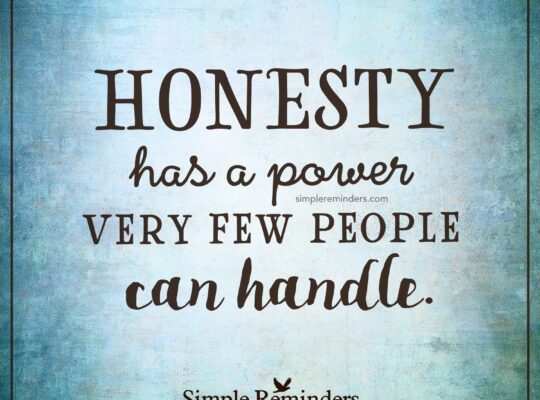Show me someone who has no regrets. Those people are pretty hard to find if they even exist! Even my mom, who was the most even keeled person I knew had some regrets. I don’t think she let them get the better of her, but she did voice them on occasion.
Some of my other family members don’t seem to let go of regrets so easily. They bring them up constantly. My paraphrased response is always the same, “You can’t change it, it happened, so time to move along.” That falls on deaf ears. Even I have to remind myself when I get caught up in regrets, but at least I have the tools to help me let them go.
Why is it Hard to Let Some Regrets Go?
Why do we regret some things more than others? Or can’t let go of some while others we can?
It’s a matter of attachment and importance. Some things aren’t that important. And others are. So much so that we attach to the story emphasizing how important they are, hence, we can’t drop it.
It’s hard not to have regrets, even the simple ones like I wish I had worn a different top today. Those kinds of regrets are easy to let go because they don’t have a big impact. It might mean you’re a little warmer today wearing that heavy top, but it’s not going to make or break your life. That kind of regret isn’t that important in the big scheme of things so we don’t dwell on it.
It’s the big ones that we keep beating ourselves up over because we are more attached to the consequences of what we did or didn’t do. They can haunt us for a long time. We wished we’d told someone something before they passed. Or not given away a certain item that was sentimental or important to us. Or not buy or do something that could’ve had a positive influence on our life. Or not saved more money. Or not sold our house when it was a seller’s market. Those are the regrets that really get under our skin because they do have a big impact on us.
A Common Regret
One of the most common regrets is “the one that got away.” The person that you felt was right for you, but it didn’t happen. Some people lament that til the day they die because of the strong feelings around it. They are very attached to their story of this person was “the one.” This story and this person are clearly very important to them; hence they can’t let it go. In their mind they have it all figured out and no other answer will suffice. That’s their story and they’re sticking to it.
My answer to that one is maybe they were, maybe they weren’t. Maybe your life would’ve been better with that person in it, but you can’t go back in time. That may sound harsh, but sometimes we have to face reality so we don’t get stuck in “what could’ve been” but isn’t. For all you know, that relationship could’ve been a disaster and you were actually protected by not being with this person. It’s hard to know so please stop guessing.
Constantly yearning for what could have been isn’t helping. It’s predicting an unknown outcome. We can’t know what we don’t know so please stop trying to figure it out. Wasting your time on this isn’t allowing the space to stay present and enjoy what you do have.
If Only…
When we keep re-living our regrets, we aren’t helping ourselves. We’re re-opening the wound and never finding solutions. We keep beating ourselves up and that’s never productive. We tell ourselves we’re stupid for not making a certain decision or fill in the blank with another derogatory term for why we did or didn’t do something.
Your time would be better spent examining why you made the “wrong” choice that you did vs the fact that you made it because you can’t undo it. Please stop inflicting more virtual bruises on yourself and be kinder to yourself.
Beating ourselves up keeps us stuck in the pain and makes us feel bad about ourselves. Smart people can make dumb decisions! Even good people make bad decisions. You’re smart and you’re good, you just had a lapse in judgement or were influenced by other factors at the time. That doesn’t make you stupid or bad so please don’t tell yourself that.
Another common scenario keeping us stuck is playing the “if only” game. “If only I’d have saved more money when I was in my thirties.” “If only I’d told my kids I love them more often.” This is another form of forecasting because we think we know the outcome if only we’d have done something.
The thing is you can’t change what you didn’t do, but you can make changes going forward. If you’re now 50, you can’t undo what you did or didn’t do when you were 30. That’s in the past. You can’t change the past, but you can change the future. You can still tell your kids you love them. You can still save money. It’s not too late. Focus on what you can do today, not what you didn’t do yesterday.
Other times we play the second-guessing game. We keep the button stuck on replay. We continually ask ourselves, “Why didn’t I do that?” or “Why did I do that?” Oftentimes this is paired with beating ourselves up because then we call ourselves stupid for doing what we did. Examining your motivation at the time won’t change what you did, but it can help you to not repeat it.
Other Games We Play
The blame game often factors into our regret too. Blaming ourselves is a cousin to beating ourselves up. “It’s my fault that I didn’t do it…” often ends with “because I’m an idiot!” Even if you don’t tack on the latter part of that sentence, recognize blame for what it is. Fault is attaching blame.
Sometimes we might blame another person for our action or inaction. All blaming does is alienate us or create rifts between us and the other person. “I wish I had done it, but so and so said not to, so I didn’t! I wish I hadn’t listened to them!” The implication is that it’s their fault for their advice and (not) your fault for taking it. No one is at fault here. There are no bad decisions, just the meaning we attach to them.
Maybe it would have been “better” to do it but what is better? Sometimes it’s obvious. You should’ve sold some stock then to make $20,000 profit, not take a $20,000 loss. I agree, that’s a biggie. Some people would go so far as to get all existential on you and ask, “But why does money matter so much?”
I’m not going to go there because we need money to live. You missed a big opportunity. But it’s also an opportunity you might not have otherwise had so in that sense, it’s not as great of a loss. It’s hard to regret what you never had, but we do. So, spend some brain power to find another opportunity. It may not be stocks so be open-minded.
Don’t attack the messenger either. If someone advised you to do or not do something, it’s not their fault if you went ahead and did it or not. It was your decision. They may have given you the advice, but you didn’t have to take it. It’s hard, but to get through it, take ownership. You made the choice; they didn’t force you. That can sometimes be a bitter pill to swallow but swallow we must if we want to move forward.
Stay tuned for Part 2 next week on how to let go of regrets.
Is it serving you to have regrets? Are they weighing you down? Are they stopping you from moving forward?
If you want to know, ask your intuition! It will never steer you wrong!
If you want to learn how to listen to your intuition, how to talk to it and how to trust it by CLICKING
HERE.
Once you start listening to your intuition, you’ll be amazed how much your life clicks into place. Then you can truly start enjoying yourself. CLICK HERE to find out more!






